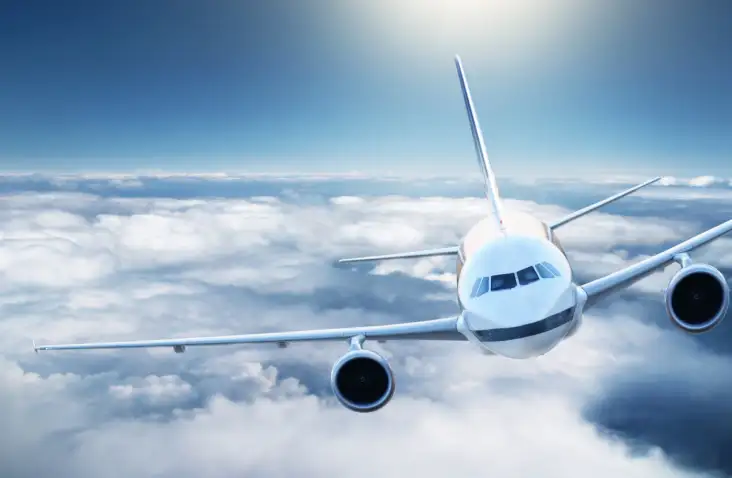
You can find Frontier’s lowest fares on the airline’s own website or on any of the big online travel agencies (OTAs) such as Expedia and Orbitz. But now, there’s a difference: If you buy through any site other than Frontier’s own FlyFrontier.com, you (1) earn only half of the usual frequent flyer miles, (2) can’t get advance seat assignments, and (3) will face higher fees for various changes. Although no other airline has copied this particular deal, it’s more than an isolated incident: Instead, it’s another early skirmish in what looks to be an escalating war between airlines and third-party air ticket distributors. And it’s not just an insider war, either; consumers stand the potential to lose some easy ability to compare fares from various lines.
As with most such wars, this one’s all about the money. In addition to their own websites, most airlines sell tickets through one or more of the many OTAs. For the most part, the OTAs get their fare information and transact sales through the global distribution systems (GDS)—mainly those three big computerized systems (Amadeus, Sabre, and Travelport) that control most such distribution worldwide. Overall, these three systems account for well over half the total sale of domestic airline tickets, in addition to hotel accommodations, rental cars, and most other popular travel services, and virtually all of the sales through travel agencies and other third parties. Even though the GDS systems originated with individual airlines, they’re now independent—and in a tug-of-war with their former founders.
The basic conflict is easy to state: Airlines have two objectives.
- Avoid fees: GDS charge airlines anywhere between $5 and $12 to book a flight. By comparison, a transaction through an airline’s own system probably costs less than $1.
- Gain “control” of customers so as to sell them additional services.
- Have the ability to present upgraded options such as bundled no-fee fare packages and to book semi-premium economy seats.
- And maybe to avoid side-by-side price comparisons.
But airlines can’t simply cut the GDS out of the transaction stream:
- They can’t afford to close off a pipeline that accounts for more than half of their business.
- Long-term GDS contracts require that airlines provide the same fares to GDS that they display for themselves.
- Large buyers and managers of business travel are heavily dependent on GDS for fare, price, and other information needed to control travel costs.
Frontier isn’t the first airline to move away from GDS. Several years ago, Southwest decided not to sell tickets through GDS: If you want Southwest, you have to go to Southwest. Several smaller lines, including Allegiant and Spirit, either shun the big GDS entirely or provide only limited participation. And some airlines get around the “equal fare” contractual requirement by widely offering “discount” promotional codes for direct bookings.
As a consumer, you too have a stake in the outcome: Side-by-side price comparisons, made available through OTAs, based on data from GDS, are a huge hit with almost all of you and make it much easier for you to locate the best deals. But you might also like to check availability and book seats in semi-premium economy, which you can’t do through OTAs.
The money stakes are far too big for this to be over anytime soon. The biggest risk for you is losing the ability to make easy side-by-side fare comparisons. Airlines could, if they wanted, still provide fare information to the OTAs. But they don’t want you going to an OTA; they want you to stick with their own systems. And they’re willing to bribe you to do just that, by offering some benefits and deals they don’t offer through the GDS.
Will the OTAs figure out workarounds so they can retain their unique price comparison capability? I wouldn’t bet against it; they’re pretty resourceful. Instead, you can look for an outcome like a tennis match, with each side gaining a temporary advantage to be offset quickly in the next round. Whatever happens, it will be interesting to watch—if frustrating to play.
Ed Perkins on Travel is copyright (c) 2012 Tribune Media Services, Inc. You Might Also Like:
We hand-pick everything we recommend and select items through testing and reviews. Some products are sent to us free of charge with no incentive to offer a favorable review. We offer our unbiased opinions and do not accept compensation to review products. All items are in stock and prices are accurate at the time of publication. If you buy something through our links, we may earn a commission.
Related
Top Fares From
Today's Top Travel Deals
Brought to you by ShermansTravel
Porto to Lisbon: 7-Nt, Small-Group Portugal...
Indus Travels
 vacation
$1899+
vacation
$1899+
Luxe, 12-Night Spain, France, Monaco &...
Regent Seven Seas Cruises
 cruise
$12599+
cruise
$12599+
Ohio: Daily Car Rentals from Cincinnati
85OFF.com
 Car Rental
$19+
Car Rental
$19+



